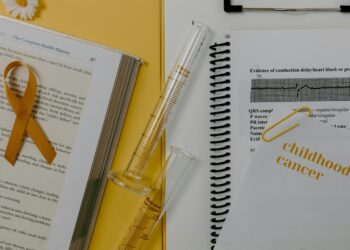The first time we see it is when we first learn how to create a differential diagnosis. Uncertainty in medicine is the figurative space around the nucleus of medical knowledge. But to understand healthcare at its most fundamental level, we must study what surrounds the nucleus, the vast expanse of medical uncertainty.
It is less glamorous than reviewing data from the latest medical device or examining the highest resolution imaging study. But it is far more important.
What we do not know determines how we respond, and consequently, how we decide. Only we do not see it this way. We think in associations, grouping clinical symptoms and lab values and imaging results with the most likely diagnosis that we memorized to go along with that grouping. In this vein, medicine is a glorified game of memory recall.
But when we rely on memory, we emphasize only what we know, which is diametrically opposite to how we make decisions – that together produces a curious contradiction.
Take the example of appendicitis. It is a straightforward diagnosis with a defined treatment, surgery. But the diagnostic symptoms and signs of appendicitis, on closer examination, are not as cut and dry as we would imagine.
The diagnosis comprises three criteria – right lower quadrant pain, nausea and vomiting, and elevated white blood cell (WBC) count. Of the three, only the latter is data, the other two are subjective and rely heavily on patient input.
This is the problem. Findings that come from subjective evaluations of the patient do little to address the uncertainty. So even if a patient presents with pain and vomiting, the uncertainty remains. The physician is unsure whether to diagnose appendicitis or request lab work to measure the WBC.
In contrast, if the patient presents with an elevated WBC and one of the two subjective symptoms, then the physician would be more willing to diagnose the patient with appendicitis and proceed to surgery.
In both scenarios, only two of the three criteria are present, but the relative uncertainty of each criterion varies, with the elevated WBC decreasing uncertainty far more than the other two. This is the problem with memory-based medicine. We know the facts. We can cite the data. But our decisions are based on the underlying uncertainty within the facts and data.
Memory has nothing to do with it. Memory comes only from what we know. Uncertainty comes from what we do not know. The two are different, but in our minds, we mix the two. So we often make clinical decisions more to safeguard against any uncertainty, though we consider the decision to be irrelevant to what we believe the diagnosis to be.
And while the degree of uncertainty decreases as we gather new information, it never goes away. We just focus on it less after minimizing it. So when we make a decision, we assume the uncertainty has been fully addressed. It is a trick we play on ourselves. We replace the lingering uncertainty with the perception of confidence. This is why few in medicine ever acknowledge they are wrong.
But we are wrong more times than we care to admit. And sometimes, we appear to be right even if our thinking is actually wrong. This is the nature of uncertainty. It is always present in some form or another.
Systemic uncertainty, that which always remains unknown, affects all of medicine. No decision is made without some degree of uncertainty. Instead of covering it up through the feigned confidence of memorized associations, we must embrace it and use it in clinical decisions.
Epistemology, the study of knowledge, how we know what we know, focuses on studying just that – how we take uncertainty, minimize it, and convert it into a factor for making decisions.
It is a more robust way of making clinical decisions than memory-based associations. When we use frameworks of uncertainty, we embrace what we do not know and we actively calibrate knowledge with uncertainty.
We avoid the contradictory thoughts that arise when we mix memorized facts with the uncertainty in those facts. Now, instead of making clinical decisions to avoid uncertainty, we make decisions because of the uncertainty.
The greatest decision-makers are those who actively acknowledge uncertainty in their decisions. We in medicine, in our quest to standardize and optimize all things clinical, have removed uncertainty from the decision-making process. We replaced it with associations because they are easy, quick, and readily repeated – in other words, they can be standardized.
Now, to advance the field of clinical decision-making, we should develop a better understanding of what we do not know – and finally learn to embrace the uncertainty.
















